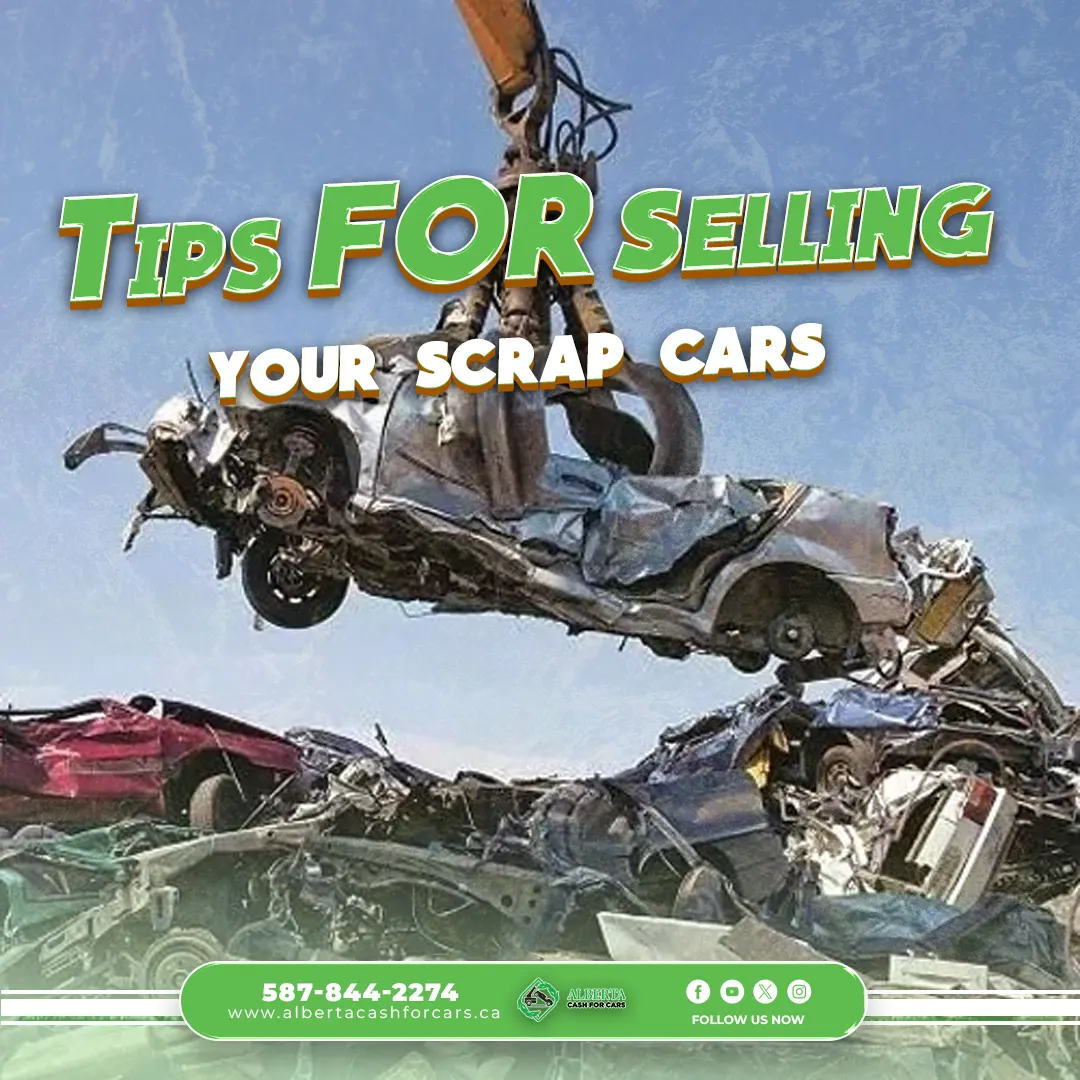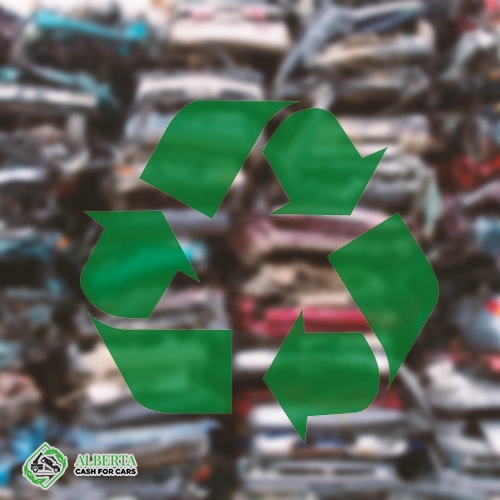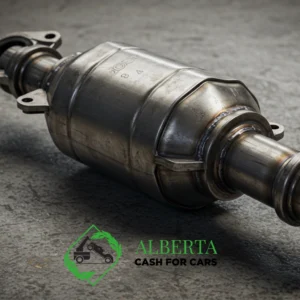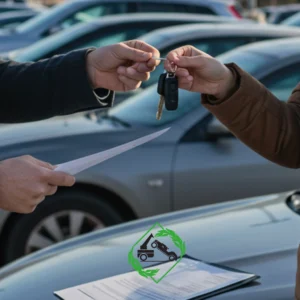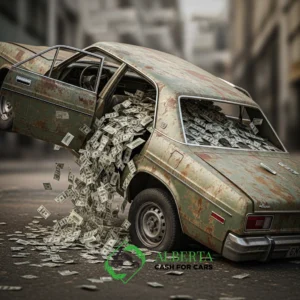Selling a car can be challenging, especially if its value has decreased. You could believe that posting an online advertisement can assist you in selling your junk car. But it can be difficult to catch the curiosity of potential buyers. When your car’s life is over would be the ideal moment to sell it.
However, what if you choose to sell your junk car even though it is nearly beyond repair? Getting in touch with a scrap car company is the smartest option to sell your old vehicle. Since there are several options available to junk car owners, we’ve put together a list of tips to help you choose the best option and optimize your reward.
No Hassle, Just Cash — Book Your Free Pickup or Quote Today!
What is a Scrap Car?
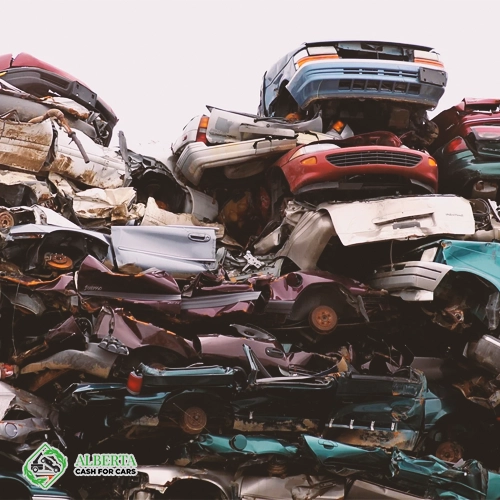
You should know that the old and rusty car that is on the corner of your street is really valuable, maybe this car is considered an unwanted item, but there is a sell scrap car market for it that is quite profitable.
First, it is better to address the issue of what is a scrap car? A scrap car is a car that has reached the end of its useful life or has been found to be unsuitable for road conditions. Here are some things you should know about scrap cars and sell scrap car:
End of life vehicle
Usually, in more official places, scrap cars are referred to as end-of-life vehicles. These machines are usually collected with environmentally friendly methods and then recycled or thrown away to minimize their impact on the ecosystem.
Age and condition of the car
A car can become a scrap car because it is old or in poor condition, which is usually caused by accidents, excessive wear and tear, and irreparable damage.
Legal considerations
In every country, government regulations control the process of scrapping cars and sell scrap car. Compliance with the prescribed legal requirements is absolutely necessary to ensure a hassle-free and legal transfer of a scrapped car.
Removal methods
Disposal of scrap cars and sell scrap car can be done through various methods such as authorized scrap yards, recycling centers or registered car scrapping facilities.
Recovery of parts and materials
Scrap cars are valuable for resale or reuse due to having recoverable parts and materials such as engines, transmissions, body parts and electronics.
Related Post:
When Should I Scrap My Car | A guide for drivers
Car scrapping policy
The car scrapping policy aims to deal with the problems caused by old vehicles on the roads. These cars usually contribute a lot to causing pollution, so to solve this problem, this policy is applied to vehicles with these conditions. Cars are tested by various tests, as a result, if a car fails the test, it is considered a vehicle that has reached the end of its life.
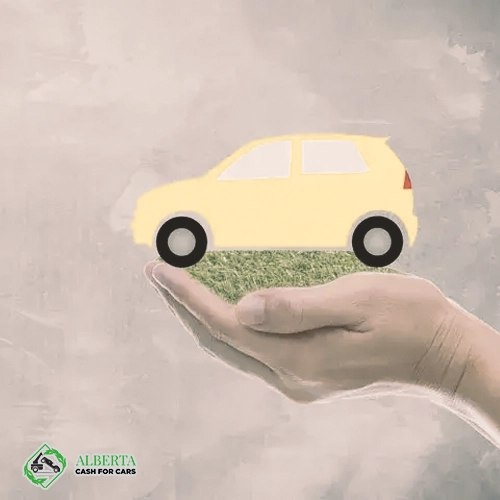
What is the difference between a scrap car and a salvage car?
Unlike a scrapped car, a salvaged car can be repaired, put back on the road, and then bought or sold. It is crushed and sold for materials because it has reached its maximum potential. The cost of salvaging and scrapping a vehicle ultimately depends on the vehicle.
If a car is salvaged, you may be able to sell it for more money because it can be repaired and made roadworthy again. Of course, this depends on how much the car is worth and how much it will cost to repair it. Making money from a wreck depends on a number of factors, such as age and condition, but ultimately the price of the wreck is determined by the weight of the car.
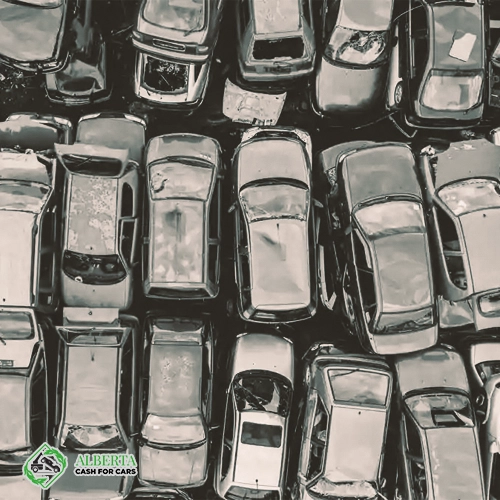
What are the tips for Selling Your Scrap Car?
The smart way to sell your scrap car is to contact a salvage company. Read the tips below to learn how to sell your car to a salvage yard.
Get your car registered
Firstly, if you are not the vehicle’s registered owner, you won’t get anything. Scrapyards may buy your vehicle if you have a scrap car for sale but no ownership, although the price may not be as good. You should be the owner of the car you’re selling with complete certainty.
Look for a certified salvage dealer
You need to find a salvage dealer you can trust. They should be fair, have excellent customer service, be licensed, and have insurance.
The most effective way to do this is to search online for customer reviews of salvage yards in your area. This can help you identify the scrap car buyers you should work with and those you should stay away from.
Gather all of your vehicle information
When you’re ready to sell your scrap car, gather as much information as possible to make the process easier and ensure you get the best offer. The vehicle’s title, manufacturer, model, year, mileage, the condition of the body and engine, and any signs of external or internal damage are all details you need to have at hand.
Get more than one quotation for your scrap car
Even if your scrap car doesn’t move, most salvage yards will still be willing to buy it from you because the parts are still worth a lot. The value of a car depends on its model and condition. A car that has reached the end of its useful life, also known as a ‘junk car’, is priced based on a number of features.
The two most important elements are weight and completeness. The heavier the vehicle, the more money you can get for it. The more comprehensive and fuller of parts the better, as parts are also sold separately from the vehicle.
Unload your car at the salvage yards
Most reputable towing companies will remove your car free of charge. However, they may include a small removal charge in certain rural areas in their final quote. So, if you think your car is safe to drive, take it away yourself.
Notifying the DMV and the insurance company of your sale
You’ll need to inform the Department of Motor Vehicles if you’ve given your car away, traded it in or sold it. You can do this by contacting them by phone, online or at a customer service center.
You may also need to contact your insurance company when you sell, exchange or give away a car. Don’t forget to remove the license plates from the old car you’re selling or transfer them to your new car.
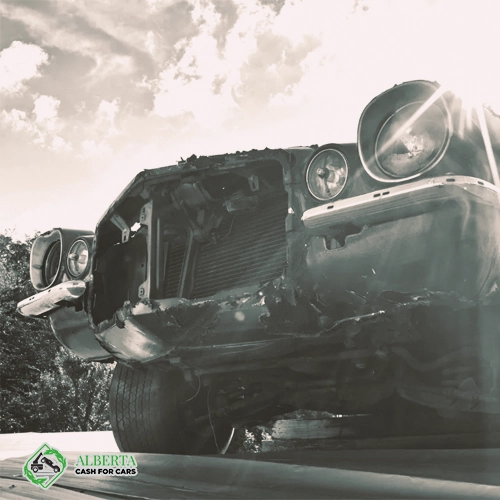
Benefits of Scrapping a Car
There are several advantages of sending your car to a scrapyard, especially if you decide to scrap it completely, and the financial and environmental benefits are worth considering.
Financial benefits
Scrapping your car can be a wise decision if it has been in an accident and needs extensive and expensive repairs. Not only will you get paid for the metal you provide from your scrap car, but you will also benefit from not having to find the money to pay for the repairs.
Similarly, dismantling your car can save you a lot of money over time if it keeps breaking down or has failed its MOT regularly. If you are considering buying a new car, you should also consider part exchange as you may be able to sell your old car for scrap metal, which would lower the cost of purchasing a new car.
Friendly to the environment
Because recycled scrap metal is used to make new products and vehicles, it can have a significant positive impact on the environment. Metal is the ideal material to recycle because, unlike most other materials, it can be recycled repeatedly without losing its structural integrity. In some circumstances, especially if your car is nearing the end of its useful life, you may even consider scrapping it to make the most of public transport and improve the environment.
Trouble-Free
The simplicity of the process of scrapping your old car is perhaps its most significant advantage. Time and money are the most valuable commodities today, so many car scrapping services will handle the situation for you with no fuss or hassle. Getting rid of your car and making money has never been easier, as scrap metal recycling is more widespread than ever.
Safety Comes first
The scrapyard can help you get at least some financial gain from the demise of your vehicle if it has reached an age or condition where it is no longer safe to drive without running the risk of an accident or breakdown. When a car is no longer functional, it can be scrapped to help pay for a replacement, as road safety is crucial and should never be taken for granted.
Environmental Impact of Scrap Cars
Although there are many benefits to recycling your car, the environmental benefits are among the most important. If you want to learn more, here are four ways car wrecking improves the environment.
Reduction of air pollution
Scrap car parts are recycled and used in other products. This reduces the need to produce new materials, reducing overall air pollution. As less harmful emissions are released into the atmosphere, this is extremely beneficial for the environment. Using recycled materials instead of new materials conserves resources by using fewer natural resources.
Reduction of the needed energy for producing new products
By recycling car parts through end-of-life vehicle disposal, less new material is needed and less energy is required to produce new goods. The collection of end-of-life vehicles is the start of the recycling process. Once the cars have been collected, the parts are sorted and cleaned.
The components are then organized by size and type. The recycled components are then used to make new products. Glass, plastic and tire remnants from cars can all be recycled and used to make new goods. This reduces the need to develop new materials, conserves natural resources and reduces pollution.
Conservation of natural resources
Once a car is scrapped, its components are recycled and reused to make other goods. For example, the metal components of a scrapped old car can be recycled and used to make new cars or other metal goods. This reduces the need to mine and process new metal, saving energy and reducing pollution.
Environment protection for future generations
Finally, remember that car recycling is good for the environment in the long term. Recycling car components is a key factor in reducing the pollution and waste burden for future generations. When cars are scrapped, their components are recycled and used in other goods, reducing pollution and waste for future generations.
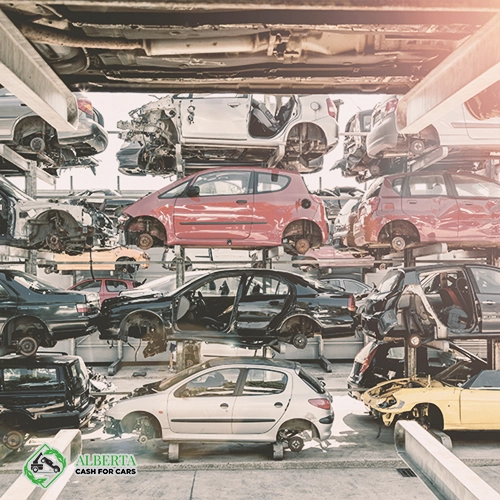
Common reasons for scrap smart car
Cars may be scrapped for various reasons. This is no different for smart cars as smart cars can also be scrapped due to accidents or general wear and tear.
Smart cars are designed in such a way that they act as a safety cell for you, however, you may not be harmed, but the car is likely to be damaged. At this stage, it may be more logical to scrap smart car not to repair it. In fact, the repair process in this case can be unbearable and require a lot of labor.
If you have a smart car, you may be approaching the end of its life, so your car needs regular maintenance so that it can be used again. You may not have a problem with this, but it won’t be long before you spend money, time, and patience at repair garages and get stressed.
We will help you in this problem and regardless of your reason for scrap smart car, we try to make this process simple and stress-free for you.
What things affect the value of smart car waste?
The value of waste can change based on various factors, for example, the make of the car, the model and the way it is driven and taken care of. If your car has parts that can be removed from the car and used elsewhere, it may be worth more than a car that is not in this condition.
Another important factor in determining the value of smart waste is its weight. It refers to the weight of the car, meaning more metal means more value in scrap deals.
Does your smart car brand make a difference in the value of waste?
In general, the higher the initial purchase price of the car, the more likely its scrap value is. The age of your car also has a big impact on the scrap value because it can be said with certainty that a car from 2002 will be worth less than a car from 2022.
In addition to these cases, the main factor when checking the scrap value of a car is its weight. Maybe this factor is strange for you, but when you pay attention to more details, you will realize that the heavier your car is, it means that it has more scrap metal. More scrap means your car is worth more to dealers.

Fast and easy buy scrap cars service
When we buy scrap cars, we can tow it from anywhere you want, such as your home, workplace or garage. We will coordinate with you to determine the best time to deliver your car. You will not be charged for towing. Wherever you are in Calgary, we are ready to serve you and buy scrap cars.
During the delivery of the car, we will collect all the necessary documents from you so that you will not be held responsible. If you have any questions about the sale and purchase of scrap cars, you can ask us the same day. We are ready to respond quickly about our customer service.
Can an untitled car be scrapped?
Many junkyards will buy untitled cars, but they will give you a lower offer because they have to apply for a new title, which is costly for them. Depending on the laws of each state, you may be able to show them your ownership with a proof of registration or bill of sale. You can also get a duplicate title before selling your car, but you must pay a fee to your state’s department of motor vehicles.
When should the car be scrapped?

If your car is no longer portable, you must scrap it. Maybe you have tried to advertise it on different platforms but you have not received an offer. At this point, you should contact a salvage yard to get a cash offer to scrap your car.
Another condition that requires you to scrap your car is that the cost of repairing it is more than the value of the car. This is a good sign that it is time to scrap your old car.
When should the car not be scrapped?
If your car is drivable and the repair cost is not high, it is better to sell it instead of scrap vehicle. You can sell your car through dealers or private markets.
Donating a car is another way to get rid of your unwanted car. You can donate your drivable car to organizations that need it. You may also be able to deduct it from your taxes.
Read Also: Scrap Car vs Repairing Car | Navigation the End-of-Life Vehicle Conundrum
How can the scrapping car process help change people’s lives?
At cash for cars Calgary we turn scrapping car into funding for worthwhile community projects. Recycling cars or donating them to charities are two examples of the mentioned cases. We try to modify every car we receive from customers.
No matter where you are in Alberta, when you compare our services to other scrapping car companies, you will find that we are the ideal choice for you. Our team of people will come to tow your car wherever you are in Alberta. By choosing our service, in addition to receiving amazing prices, you will realize that you are helping the community in this way.
In addition to the people directly supported, this process has a positive impact on communities, for example reducing crime rates, reducing pressure on emergency services, allowing tax money to be directed to areas where it is most needed.

How much money can you scrapping car?
It depends on the car, but in general you shouldn’t expect to get more than what you would get at a private sale, because that way you’ll spend a lot of time trying to get delete your junk car.
Scrap dealers tend to pay more for a bigger car, but again, this is no guarantee of getting more money. If you can take it to the scrap yard yourself and negotiate, you may be able to get a higher price because you’ve shown that the car is towable and drivable. Of course, in this situation, you may decide to sell it privately and get a higher price than its scrap value.
If your car is completely scrap, you probably won’t get much money for it because you will only get the metal value.
How can I get more money for my car?
If you have enough time and skills, you can sell your car for its parts and get some extra money. This can mean conducting separate transactions with people looking for a specific part, so you can set competitive prices for your auto parts, resulting in a little more money.
Be careful that the better condition your car is in, the more money you can negotiate, and if it is in good working condition, you may be able to trade it in at the dealership.
Enhancing Your Scrap Car Sale
In today’s interconnected world, leveraging digital platforms can significantly streamline and enhance the process of selling your scrap car. While traditional methods remain effective, integrating online tools can broaden your reach and simplify transactions.
Utilizing Online Marketplaces and Classifieds
Explore online marketplaces and classified websites that cater to automotive parts and scrap vehicles. Platforms like Craigslist, Facebook Marketplace, and specialized automotive forums can connect you with potential buyers or salvage yards. Create detailed listings with clear photos and accurate descriptions of your scrap car’s condition. Highlight any valuable parts that can be salvaged, as this can attract buyers looking for specific components.
Leveraging Social Media for Direct Connections
Social media platforms can be powerful tools for networking and connecting with potential buyers or salvage companies. Join local automotive groups or community forums on Facebook and other platforms. Share information about your scrap car, including its make, model, and condition. Engage with potential buyers by answering questions and providing additional details. Consider creating a short video showcasing the car’s condition, which can be shared across various social media channels.
Exploring Online Auction Platforms
For vehicles with valuable parts or unique features, consider listing your scrap car on online auction platforms. Websites like eBay Motors or specialized automotive auction sites can attract a wider audience and potentially drive up the selling price. Provide detailed descriptions and high-quality photos to maximize interest. Be prepared to handle shipping or towing arrangements if the buyer is located outside your local area. Utilizing these digital tools can expand your options and potentially increase the return on your scrap car sale.
Read Also: Sell My Old Car Online
Should you sell car parts for cash?
If you want, you can sell some car parts for cash. For example, the catalytic converter is an important part and depending on its type and condition, it can be worth up to several hundred dollars. Rims, audio systems, spare tires and other items can also be sold.
But keep in mind that if you sold your car parts separately, salvage yards will offer you less, also selling car parts separately requires time, energy and knowledge.
Selling parts in cash
Before you contact scrap vehicle companies, research that if your car has valuable parts, sell them separately. For example, selling the following parts can bring good money:
- Jack
- Battery
- Radiator
- Alternator
- Spare tire
- Catalytic converter
- Rims and Tires
- Sound systems
Disassembly may not be for everyone, but it’s good to know that you can get more value from selling parts.

Sell Car to Scrap Yard: A Guide to Different Types of Cars Accepted by Scrap Yards
Scrapping a car is an environmentally friendly way to get rid of an old vehicle that is no longer roadworthy. It’s also a way to make some extra money. The amount of money you can get to sell car to scrap yard will depend on a few factors, including the make, model, and year of the car, as well as the current price of scrap metal.
Here are some of the different types of cars that you can sell to a scrap yard:
- Unwanted or Inoperable Cars: These are cars that are no longer drivable and are not worth repairing. They may have major mechanical problems, body damage, or both.
- Accidental Cars: These are cars that have been damaged in an accident and are no longer safe to drive. The extent of the damage will determine the value of the car for scrap.
- High-Mileage Cars: These are cars that have been driven for a long time and have high mileage. They may still be drivable, but they are likely to need expensive repairs in the near future.
- Salvage Cars: These are cars that have been declared a total loss by an insurance company. They are typically heavily damaged and are not worth repairing.
If you’re interested to sell car to scrap yard, you can contact Alberta cash for car. We will be happy to provide you with a free, no-obligation quote based on the make, model, and year of your car, as well as the current price of scrap metal.
How much money do you make by scrap vehicle?
When your car is a junk, the only thing of value is its metal. Due to the price fluctuations in the market, it is not possible to announce a fixed number. But in general, the scrap vehicle value is usually $125 per ton of a complete car. Considering that most cars weigh 1.5 to 2 tons, this amount can be between 175 and 250 dollars. But if your car is heavier, this value may change for you. However, prices change according to various factors. Also, this is different for each state. So before scrapping the car, consider the prices below.

Important things that you should consider before sending my car to the scrap yard
Now that you have decided to get rid of your broken car, scrapping it is one of the best ways. This will be a profitable way for you. Before sending my car to the scrap yard process, there are certain items that you need to remove from your car. Know this because most salvage yards are only interested in scrap metal, so you can sell some of the useful parts separately and earn more. There are also some things that you need to keep. The following must be removed from the car before towing:
personal items
A car is like a home for many people, which means that many items may accumulate in the car over time. If you have had your car for a long time, you have put personal items such as jewelry, perfume, sports equipment, and even clothes and shoes inside the car. It is better to check all the storage compartments including the trunk, under the seats and floor mats of the car, and other items to make sure that no personal belongings are left in the car.
Most importantly, do not forget to remove the important documents that you kept in the car from your car. These documents can be related to car title and registration or car insurance.
License Plate
Even when you want to get rid of the car, its license plate is useful. If your state allows license plates to be transferred from one vehicle to another, you may need a license plate for your next vehicle. Sometimes your insurance policy may require the plates to be removed, so the DMV may request a title cancellation application process. In any case, you should remember not to give your occupied car to scrap yards without removing the license plate.
Empty the fuel tank
If your car is still considered a drivable and active vehicle, you should make sure you use up all the gas before selling it to a scrap yard. Even if you haven’t used your car in a while but still have fuel in it, empty the gas tank before towing the car.
Remove the valuable parts of the occupied car
You can remove valuable parts from the car and sell them. But if you have explained the condition of the car to the salvage yard in the same condition, you must deliver it in the same condition.

Conclusion
The final return on a car’s investment comes when it is scrapped. You’ll find that scrapping your car is easier than it sounds, although the process may seem long and difficult. Scrapping a car is good for you and good for the environment. We can reduce the amount of pollution released into the atmosphere by recycling old and abandoned cars. Recycling also saves the energy and resources that would otherwise be used to make new cars.

